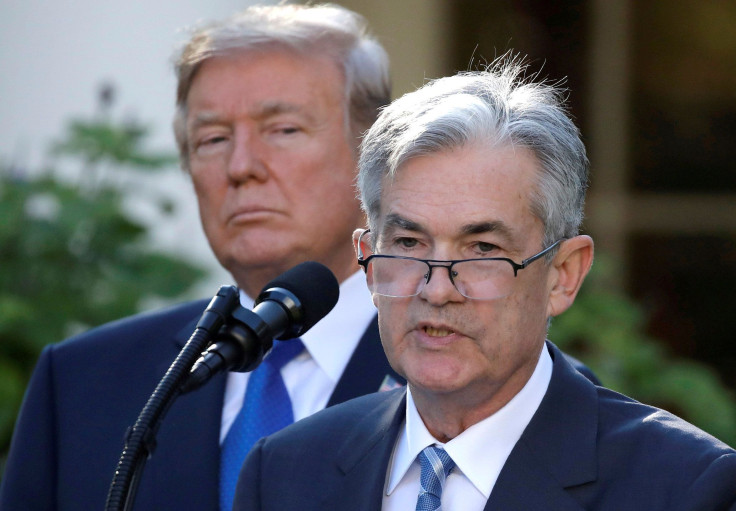US Economy: White House Considered Legal Implications Of Demoting Fed Chairman Jerome Powell

The Trump administration pondered the unprecedented move of demoting Federal Reserve Chairman Jerome Powell to Fed governor, according to a report from Bloomberg News.
The White House conducted a legal analysis on the ramifications of such a decision. The discussions took place in December after Trump had allegedly talked about firing Powell, which would cause a shock to the stock market.
Trump's top economic advisor Larry Kudlow has stated that the move is not under consideration.
Trump has publicly expressed concerns about the leadership of the central bank under Powell and has frequently criticized the Federal Reserve for raising interest rates.
In an interview with ABC News last week, Trump said that the U.S. economy would be even stronger "if we had a different person in the Federal Reserve who didn't raise rates so much…"
Trump in October said the "Fed has gone crazy" under Powell and behind the rise in interest rates.
Powell was nominated by Trump as the Chairman of the Federal Reserve in November 2017 and began his term in February 2018.
The U.S. economy and remained fairly strong, with the national unemployment rate at 3.6% in May, though "budget deficits as a percentage of GDP will exceed any other president’s during a time of economic expansion," according to Chuck Jones of Forbes.
When the economy grows due to increased spending, the Federal Reserve can raise interest rates to fight possible inflation, which is what Fed Chairman Powell has done.
Decisions made by Powell as chairman do not need political approval from the president.
Economists call this contractionary monetary policy, which seeks to reduce the money supply in the economy. By raising rates the intention is for banks to hold onto their money instead of lending it out.
© Copyright IBTimes 2024. All rights reserved.





















